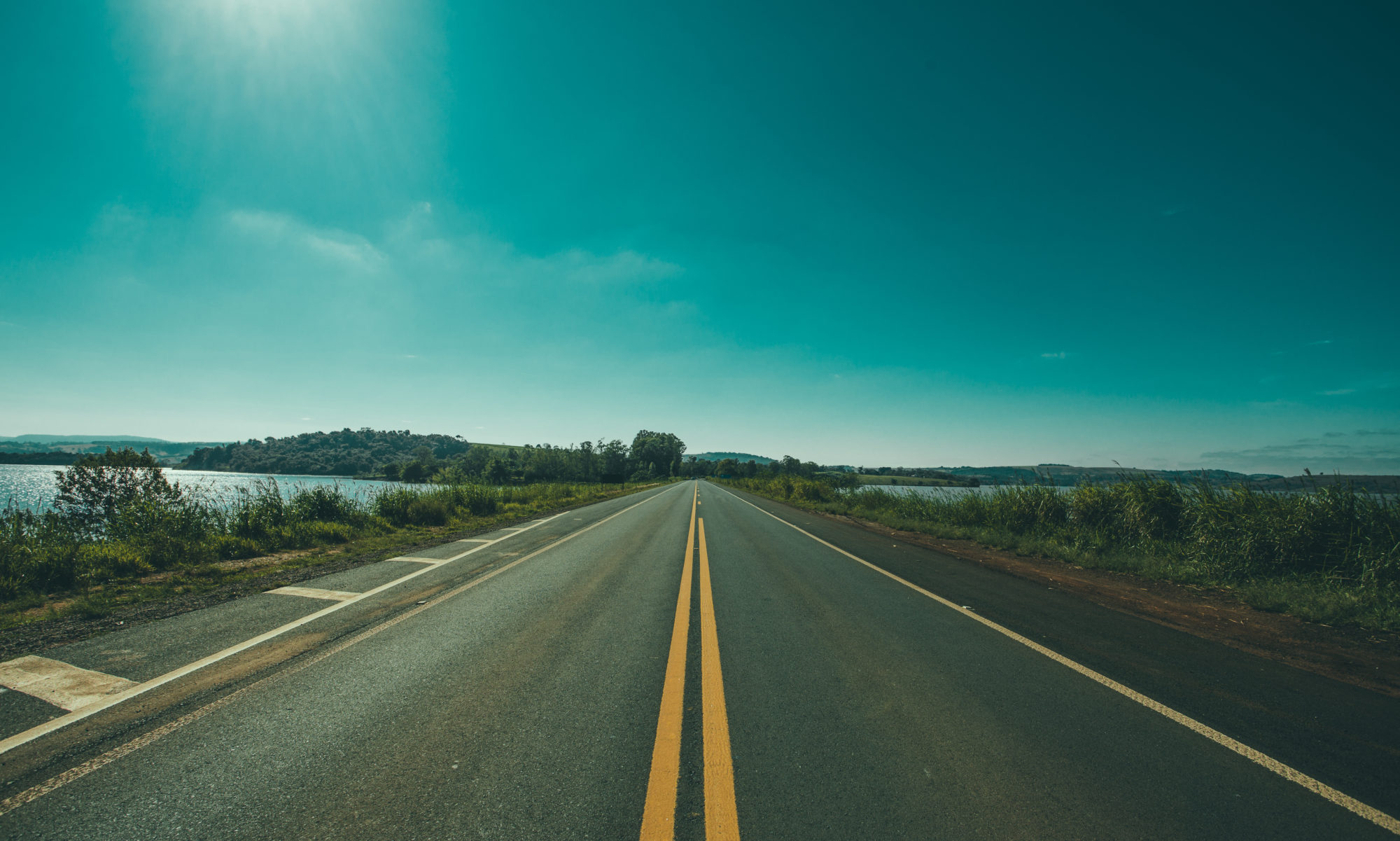We arrive in Port Blair in the Andaman Islands. Officially, it’s the Andaman and Nicobar Islands. We come here because we like islands.
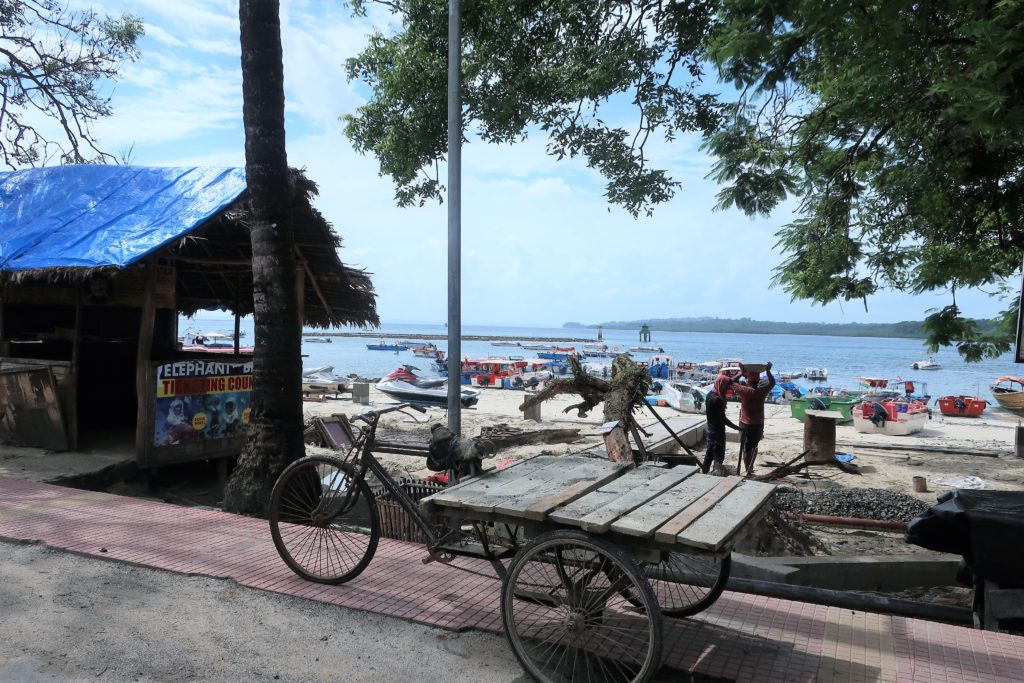
We are here for nearly two weeks. Because it is monsoon season, it rains most of the time. Like, 80 per cent of the time. And not in occasional sprinkles, as we see elsewhere in India – the rain comes down in cataclysmic deluges. In gushing inundations. In cascading torrents. In cats and dogs and tigers. You get the idea.
But it’s all good. We have no illusions that we can expect anything else when traveling at this time of the year. It’s very relaxing. Especially because we are essentially cut off from the world: no internet or phone service.
The Andamans were in the news recently when a would-be American missionary was killed by the inhabitants of North Sentinel Island.
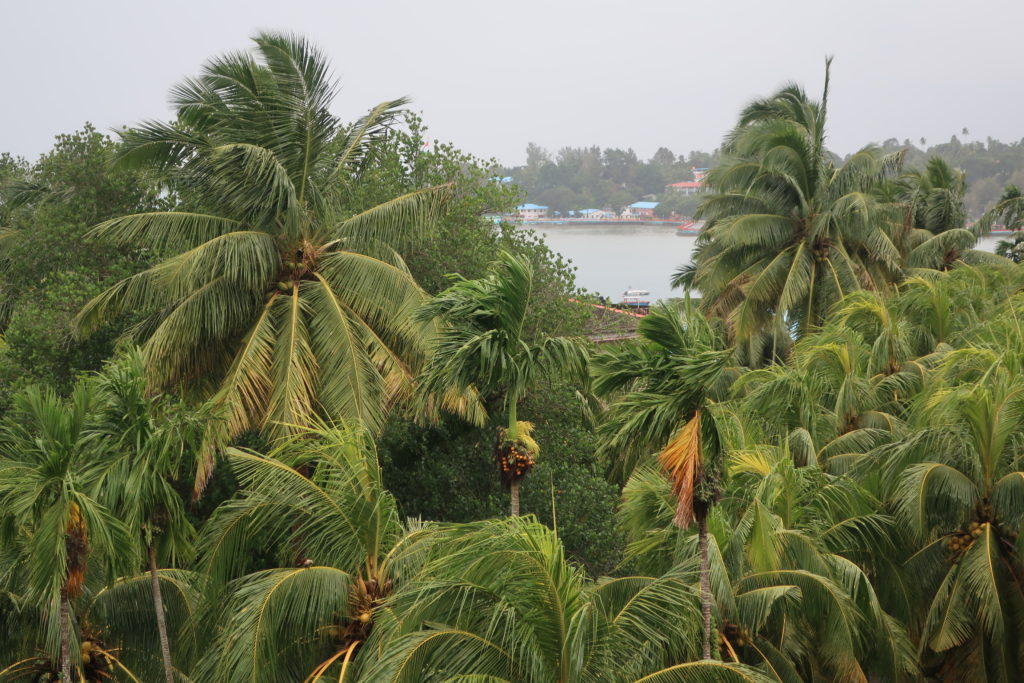
These islands are the home of many different tribal people, most of whom are now ‘assimilated’ to Indian rule to difference degrees.
One of our first stops is the Cellular Jail. A main reason for the British taking over the Andamans was as a warehouse for Indian political prisoners, beginning from the time of the Indian Mutiny. It’s an unusually solemn place for Indian visitors.
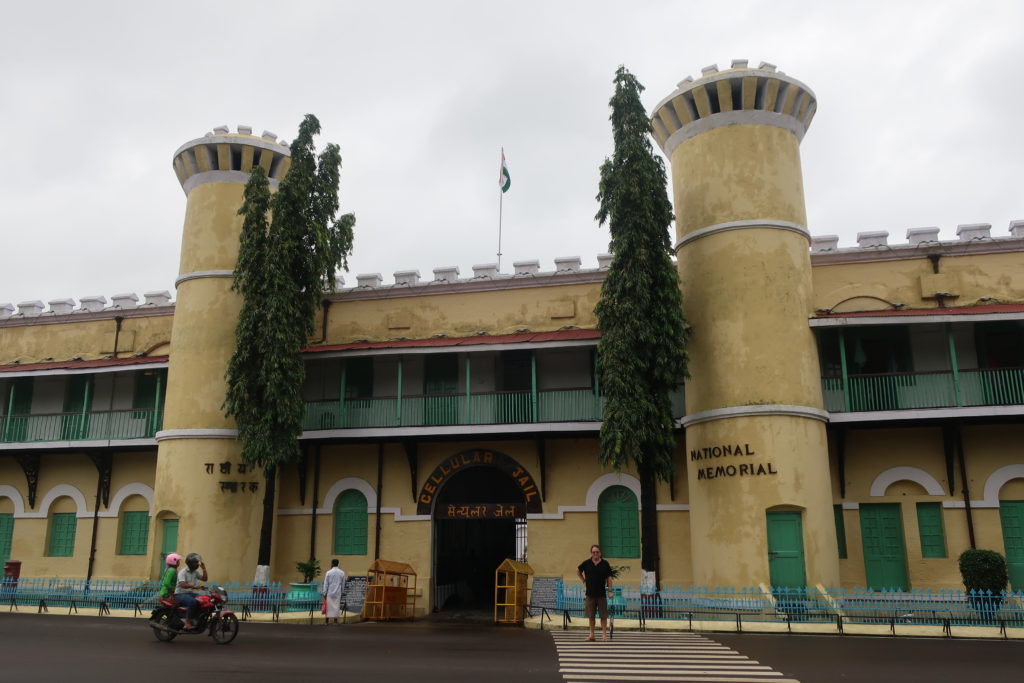
The prison gives many details of savage atrocities supposedly committed by the British. There is a suspicious shortage of documentation for this, outside of the usual stories of cruel hardship common to all contemporary prisons. For example, the linked Wikipedia article says this:
‘It is estimated that of the total 80,000 political prisoners the British Raj held at the Kalapani, a very few survived. ‘
Does this imply that, say, 79,937 political prisoners died in captivity? Proof, please. And not to indulge in ‘whatabout-ism‘, but modern-day India is not exactly known for the Scandinavian mildness of its prisons.
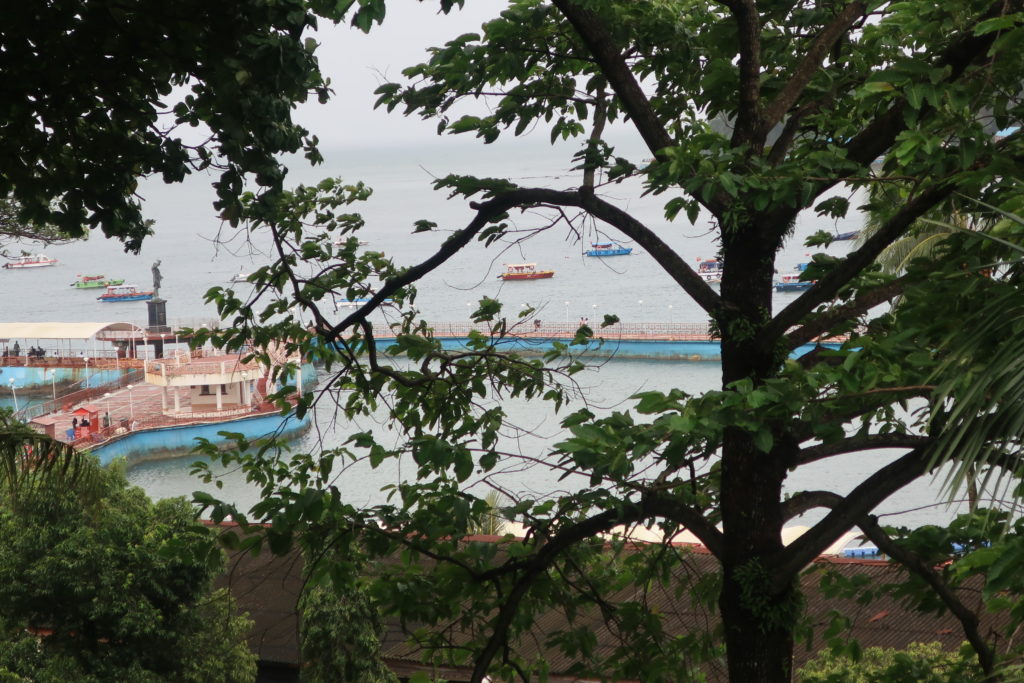
Port Blair from above.
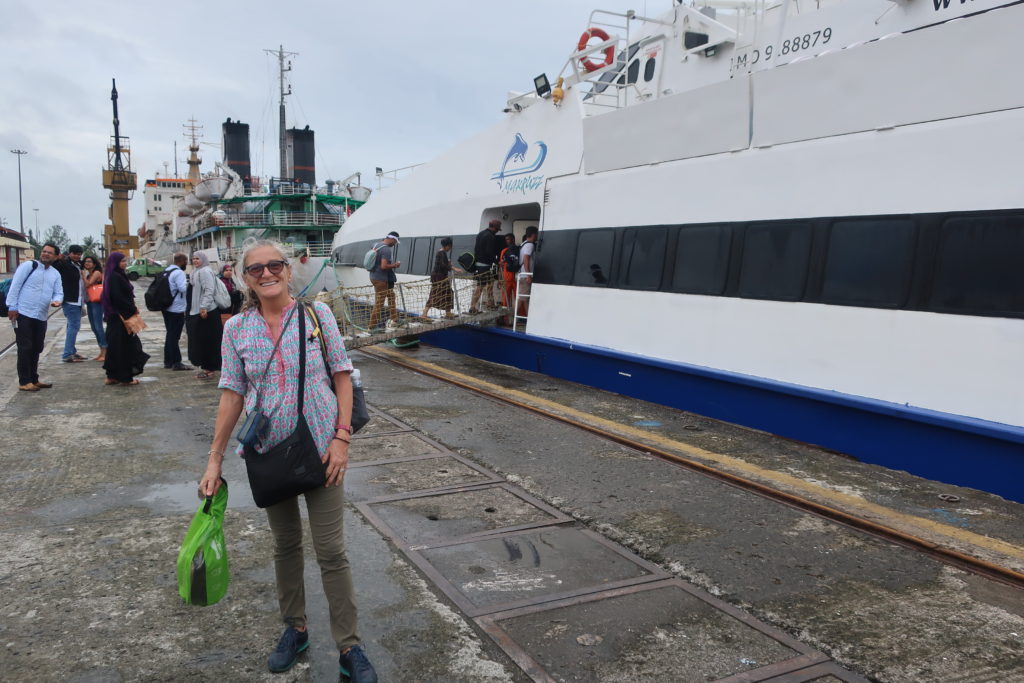
‘Well, there we were stuck in Port Blair,
Where boats break and children stare…‘ – Jack Johnson, Holes to Heaven
This song is the only one in existence that I know of that mentions Port Blair. It’s a sort of hapax legomenon of popular music. (I believe the term came into use from Homeric studies, where a hapax legomenon is a word that is only used once in the body of Homer’s work.) I mention echidna as another one in an earlier blog entry.
On Havelock Island, which they say has some of the most beautiful beaches in Asia in the proper season, we venture further afield on the rare occasions that it is not raining.
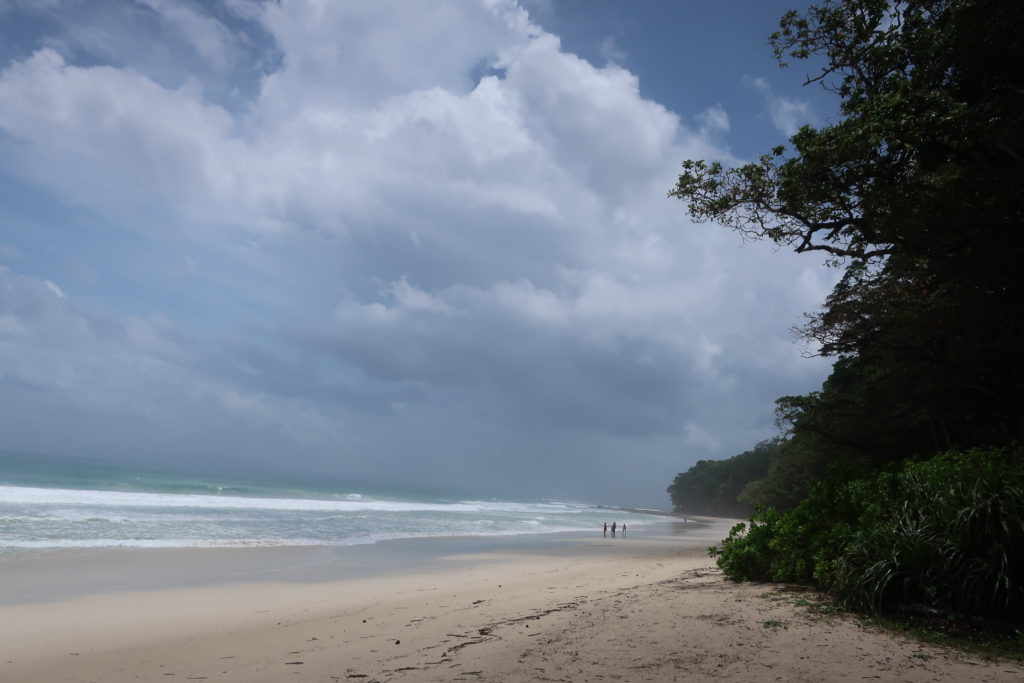
This is our Robinson Crusoe-style hut that we live in for a week. It is VERY open to the elements. Maria surprises a small snake in our room one day.
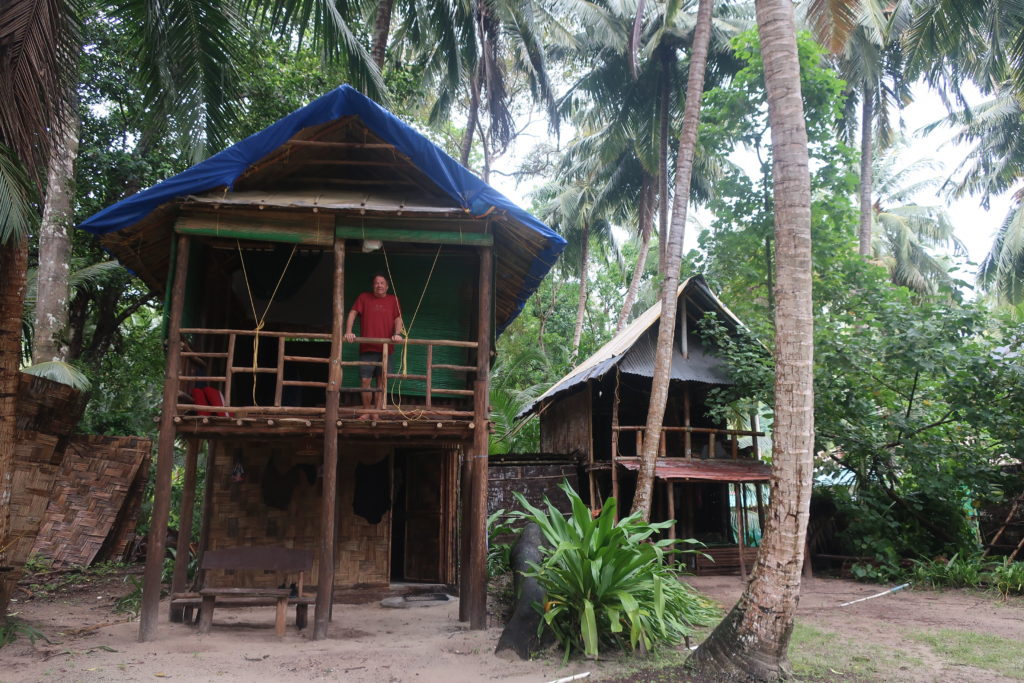
On a morning when it’s not raining, we head for Radhanagar Beach on the west side of the island.
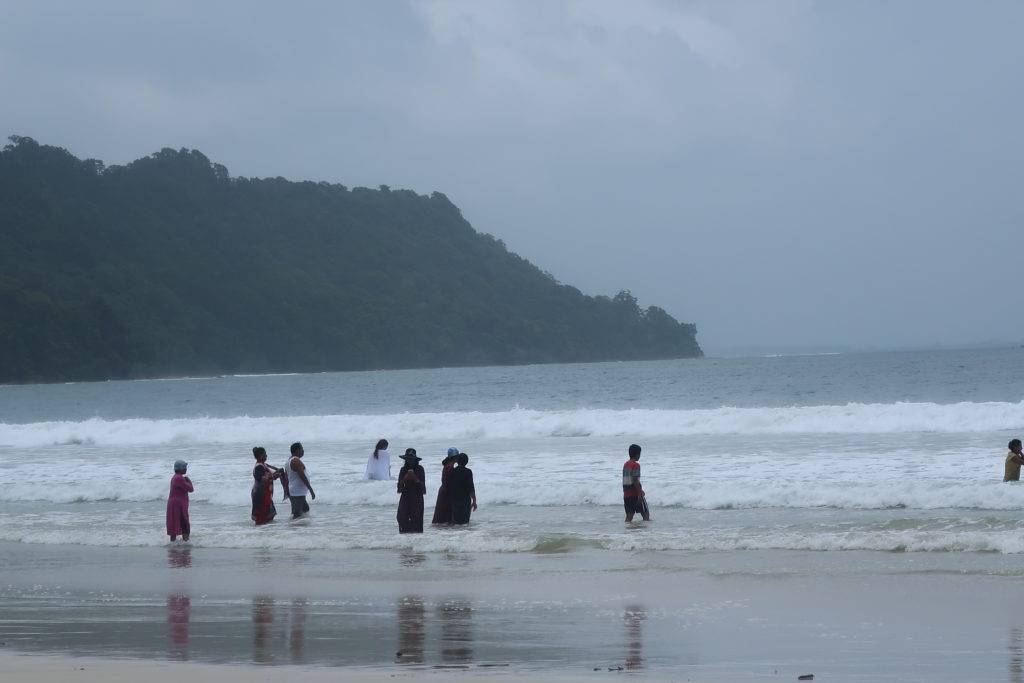
‘Wading’ is more accurate – very few people in India know how to swim.
There are salt-water crocodiles around, which is something else to consider.
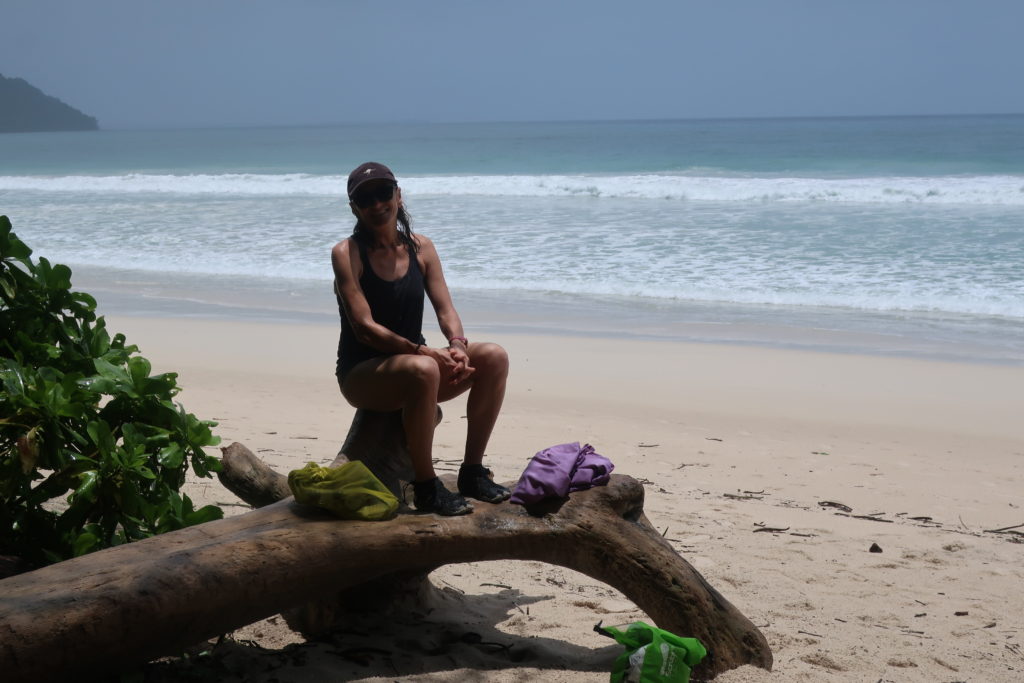
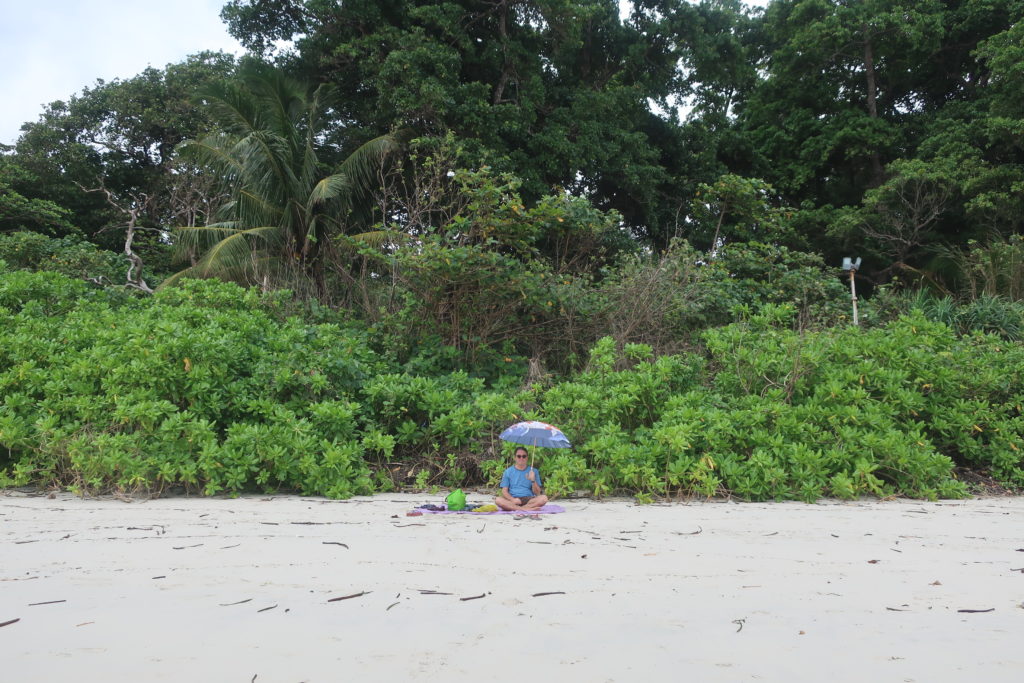
Our waterlogged week is up. We wait for the ferry back to Port Blair.
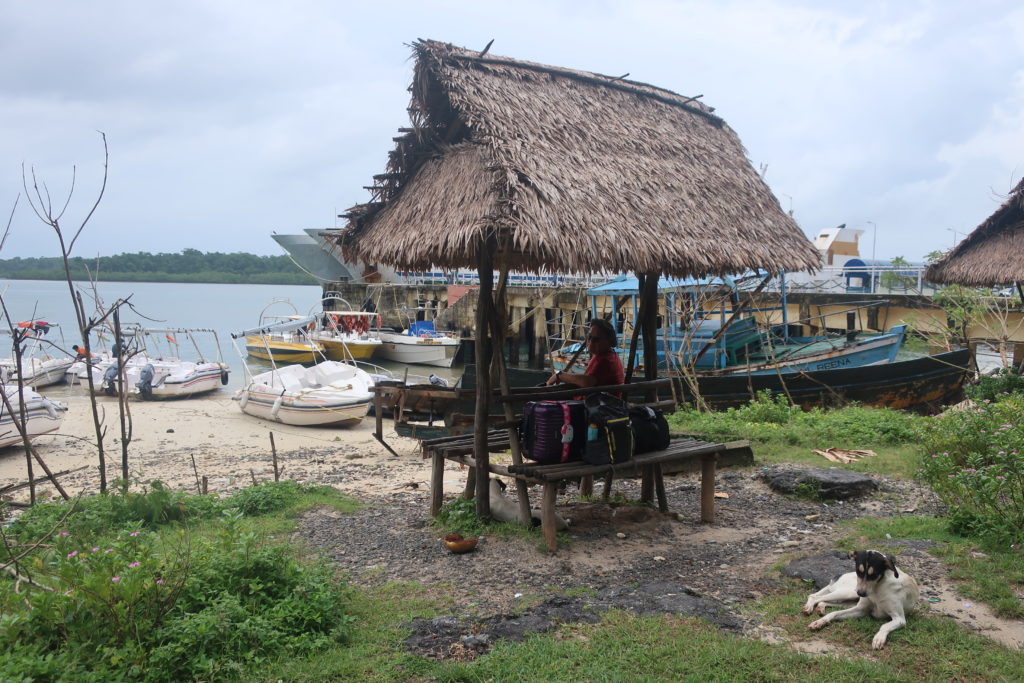
On another day in Port Blair, we take a boat to nearby Ross Island.
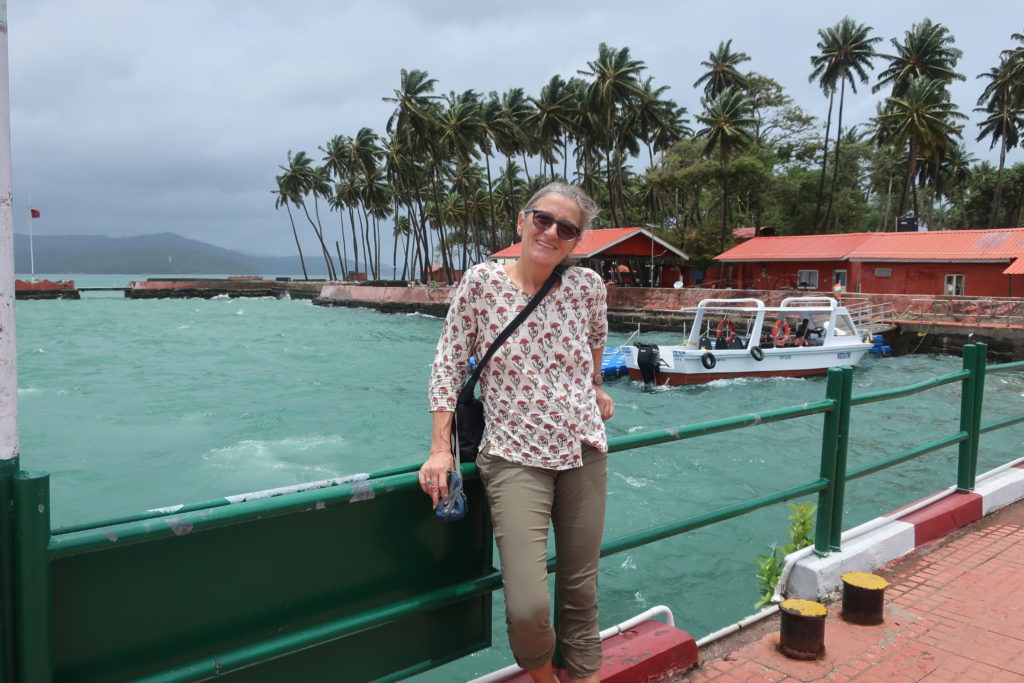
This is where the original British settlement in the Andamans was located. These days, it’s like Angkor Wat, except the jungle is reclaiming Victorian English structures rather than Khmer ruins.
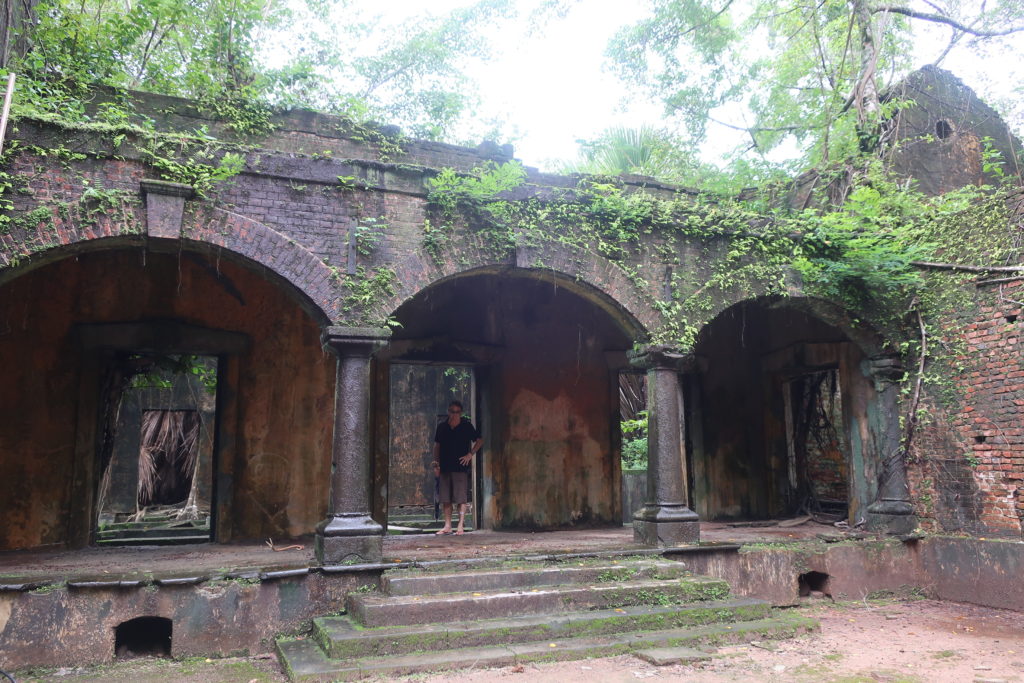
It was abandoned after an earthquake and the administrative centre moved to Port Blair.
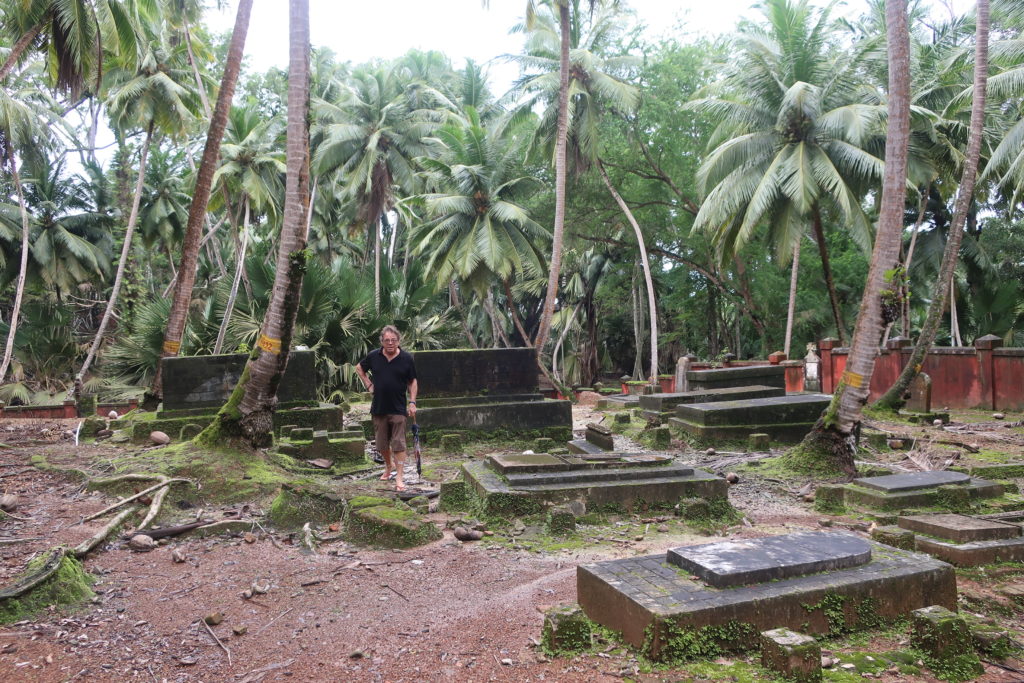
Sight or Insight of the Day
Indians really hate the British. As reported, the chief tourist attraction in Port Blair is the cellular jail. Because it held political prisoners of India’s independence movement, it is a shrine-like destination for people from all over India.
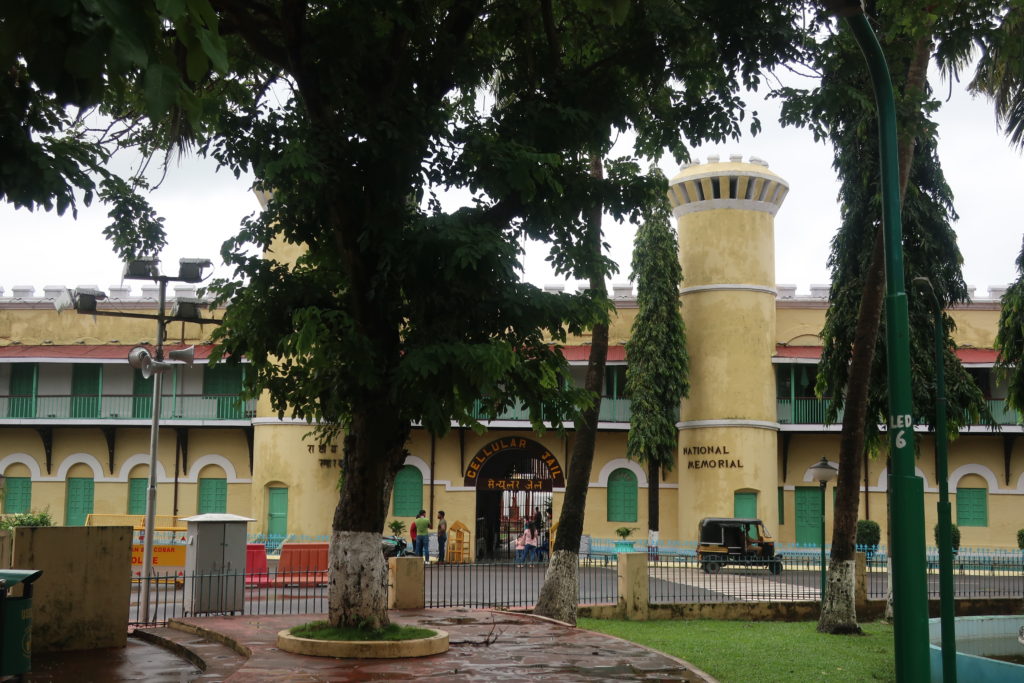
Never mind that millions of South Asians took the first opportunity to move to the UK – the official line of the modern Government of India is that living under British Rule was no different than life under the brutal occupation of, say, Nazi Germany. Every museum we’ve been to makes this abundantly clear.
It’s understandable that India would be happy to see the backs of the British and to become maître chez eux. But to equate the rule of the British with the extermination campaigns of genocidal monsters is not true. And because it’s not true, it does a disservice to history as a science and a discipline, as opposed to history as the propagation of feel-good stories for the simple-minded. (A notable recent trend in the West is ‘history as the propagation of feel-bad stories for the simple-minded’.)
It seems ironic that the Moghul Era and centuries leading up to it – when marauders from central Asia swept into the subcontinent, imposing a foreign religion, burning cities, and razing temples – is often considered as the ‘Golden Age’ of India. While the railway-building, archeology-inclined British are officially reviled. (Even though they introduced cricket, a national obsession.)
It’s also ironic that with this attitude, India celebrates as one of the greatest heroes of her independence struggle Netaji Subhas Chandra Bose, a man who in fact did spend his time in the company of actual genocidal monsters. Like Heinrich Himmler.
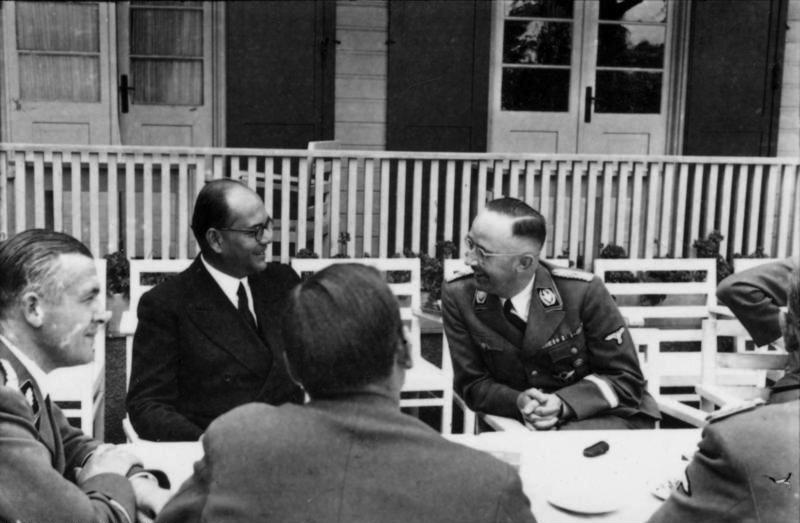
And here is Netaji Bose at the far right with his fellow-quislings flanking General Tojo.
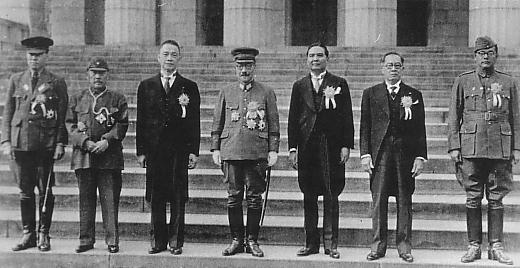
Calcutta’s airport is renamed after Netaji. (We like its previous name – Dum Dum Airport.)
Point of interest: it’s not as if by gaining independence, India has escaped the shackles of misrule. A frankly incredible 43 per cent of Indian Members of Parliament have been charged with serious crimes. So in a final irony, the once-globe-straddling British can now scarcely govern their own small island. While the citizens of India are ruled by people who routinely rape, rob, and murder them with impunity.
